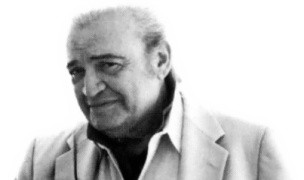 9 Terms
9 TermsHome > Terms > Filipino (TL) > Karl Marx
Karl Marx
Much followed, and much misunderstood, German economist (1818–83). His two best-known works were the Communist Manifesto, written in 1848 with Friedrich Engels, and Das Kapital, in four volumes published between 1867 and 1910. Most of his economic assumptions were drawn from orthodox classical economics, but he used them to reach highly unorthodox conclusions. Although claimed and blamed as the inspiration of some of the most virulently anti-market governments the world has ever seen, he was not wholly against capitalism. Indeed, he praised it for rescuing millions of people from “the idiocy of rural life”. Even so, he thought it was doomed. A shortage of demand would concentrate economic power and wealth in ever fewer hands, producing an ever-larger and more miserable proletariat. This would eventually rise up, creating a “dictatorship of the proletariat” and leading eventually to a “withering away” of the state. Marx thought that this version of history was inevitable. So far, history has proved him wrong, largely because capitalism has delivered a much better deal to the masses than he believed it would.
- Ordklass: proper noun
- Synonymer:
- Blossary:
- Bransch/domän: Economy
- Category: Economics
- Company: The Economist
- Produkt:
- Akronym-förkortning:
Andra språk:
Vad vill du säga?
Terms in the News
Featured Terms
Pasko mumurahing alahas
Ang higanteng intergalactic bubble ng gas lumulutang sa espasyo. Ito ang labi ng isang napakalaking pagsabog ng bituin, o supernova, sa Large ...
Bidragsgivare
Featured blossaries
Marouane937
0
Terms
58
Ordlistor
3
Followers
9 Most Expensive Streets In The World
 9 Terms
9 Terms
Browers Terms By Category
- Satellites(455)
- Space flight(332)
- Control systems(178)
- Space shuttle(72)
Aerospace(1037) Terms
- Marketing communications(549)
- Online advertising(216)
- Billboard advertising(152)
- Television advertising(72)
- Radio advertising(57)
- New media advertising(40)
Advertising(1107) Terms
- Muscular(158)
- Brain(145)
- Human body(144)
- Developmental anatomy(72)
- Nervous system(57)
- Arteries(53)
Anatomy(873) Terms
- Digital Signal Processors (DSP)(1099)
- Test equipment(1007)
- Semiconductor quality(321)
- Silicon wafer(101)
- Components, parts & accessories(10)
- Process equipment(6)
Semiconductors(2548) Terms
- Mapping science(4042)
- Soil science(1654)
- Physical oceanography(1561)
- Geology(1407)
- Seismology(488)
- Remote sensing(446)




